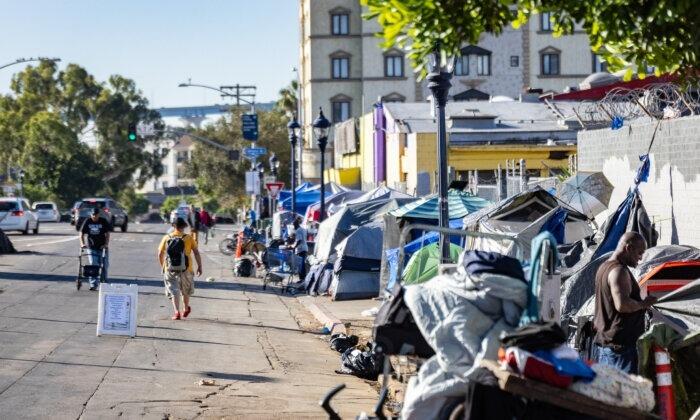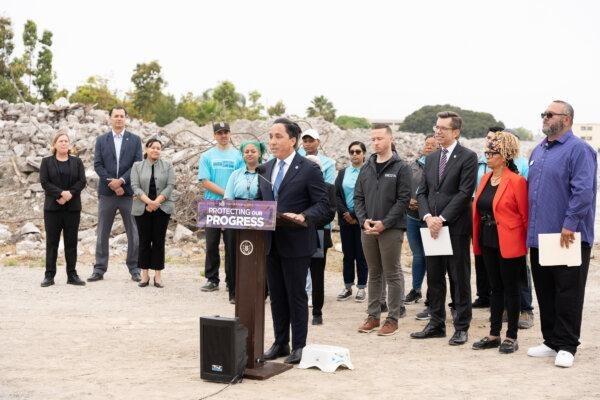Imagine planning a vacation and not being able to check Airbnb or another online booking site for an apartment in which to spend a few days walking, shopping and eating among the locals. Would a hotel do?
That's the future confronting visitors to central Barcelona in four years. To safeguard and expand the housing supply for full-time residents, local authorities want to rid the Spanish city known for its architecture, beaches and Catalan culture of the 10,000 apartments licensed as short-term rentals.
Barcelona City Hall announced last month that it would not renew any tourist apartment licenses after they expire in 2028. Deputy Mayor Laia Bonet said the city wants tourism, which accounts for 15% of the local economy, but must help residents cope with skyrocketing rents and real estate prices.
“Our housing emergency obligates us, forces us, to change the way we do things and to put the priority on housing above our policies for accommodating tourists,” Bonet told The Associated Press.
Property owners plan to fight the decision, arguing that eliminating short-term rentals would threaten their livelihoods and leave the city without enough temporary lodging: Some 2.5 million tourists stayed in an apartment last year, according to the Association of Tourist Apartments of Barcelona, also known as Apartur.
Residents of the city, which has a population of about 1.6 million, have campaigned against “overtourism” for several years, but the anti-tourism sentiment has grown more heated: During a protest in Barcelona's Las Ramblas district this month, some participants shouted “Go home!” and squirted water pistols at people seated at outdoor tables.
Residential real estate prices in Barcelona have increased by an average of 38% over the past decade, a period in which the average rent soared by 68%, according to the municipal government. Like in other popular urban areas, many young people who grew up there struggle to afford a place of their own. Authorities say a lack of supply is partly to blame.
A global dilemma
Other cities around the world also are struggling to reconcile the housing needs of year-round residents, the rights of landlords and the allure of the economic benefits that being a top tourist destination can bring.
Measures to limit the free-for-all of investors converting apartments into holiday rentals have included partial bans, caps on the number of days units can be let out and registration requirements for frequent hosts.
New York cracked down on short-term apartment rentals in September with rules requiring owners to remain in their residence when they host overnight visitors and capping the number of guests at two. Maui's mayor said last month that he wants to end condo rentals to tourists to help deal with a housing shortage made worse by last year's devastating fire on the Hawaiian island.
In Italy, a 2022 amendment to national legislation allowed the lagoon city of Venice to limit short-term rentals, but the city administration has not acted on it.
Before moving to eradicate tourist apartments altogether, Barcelona officials tried more limited approaches. Its previous mayor, a former housing activist, made several moves to regulate the market, including a ban on the rental of individual rooms in apartments for stays under 31 days in 2020. The city also has moved aggressively to get unlicensed tourist apartments removed from online platforms.
“We have accumulated lots of know-how in Barcelona that we are ready to share with other cities that want to have this debate,” Bonet said.
What's at stake for owners
The decision in Barcelona was made possible after the government of Catalonia, the northeast region of which Barcelona is the capital, passed a law year year stating that current licenses for tourist apartments would expire by 2028 in areas determined to have shortages of affordable housing.
Local governments that want to renew the licenses must demonstrate that doing so is compatible with locals being able to find affordable housing. Barcelona City Hall said it wasn't.
Spain’s conservative opposition party is challenging the regional law in the country's Constitutional Court, alleging that the law infringes on property rights and economic liberty. Apartur, which represents 400 owners of short-term rental units in Barcelona, argues the industry has become a scapegoat in a city that has not granted any new tourist apartment licenses since 2014.
Bonaventura Durall runs a company that owns and rents out 52 apartments near Barcelona’s beachfront. Forty of the apartments are located in a building that his business and others built in 2010 to tap into the growing short-term rental industry. He says the municipal government's plan to phase out vacation rentals is unfair and puts his business and its 16 employees at risk.
“There is an investment behind this that has created jobs and tax revenues and a way of life, which will now have its wings clipped,” Durall said. "This is like you go to a bar and take away its liquor license or you take away a taxi driver's permit to drive a taxi.”
Critics also say the move amounts to Barcelona exercising eminent domain and will inevitably create a black market of unregulated vacation rentals. Bonet, the deputy mayor, denies that City Hall is expropriating anyone's property.
“We are not saying that these apartments will disappear and therefore the owners of these apartments can’t generate revenue from them,” Bonet said. “They will have the same assets, but they will have to put them to the use they were originally built for, which is to house families.”
The limits of the sharing economy
Ignasi Martí, director of the Observatory for Dignified Housing at Spain’s Esade business and law school, said that in addition to likely facing legal hurdles, the initiative would at most only dent rental costs.
Most studies indicate that Barcelona needs about 60,000 new housing units to meet current demand, he said.
But Martí thinks that removing tourists from residential buildings could improve the daily lives of people who call the city home.
“Take the case of a mother who needs to leave her child with a neighbor. If she lives in a building with tourist apartments, she knows that she can’t count on them,” he said. “Tourist apartments undoubtedly have repercussions in the possibility of creating ties, solidarity or making friends, beyond the issue of noise and people coming and going at any hour."
Esther Roset, a 68-year-old retired bank worker, thinks so, too. She has spent years complaining about the tourist apartment above her home. Some guests have done things like vomit off the balcony, brought in prostitutes and opened a fire extinguisher in the stairwell.
Apartur argues that such behavior is rare, in party because of Barcelona's strict regulations.
Roset has other tourist-related pet peeves, such as the expensive food joints catering to foreigners that have swept away the traditional bars where she could get a simple sandwich. She pointed to three nearby restaurants that specialize in brunch. Roset, like most Spaniards, doesn’t do brunch.
“I shouldn’t have to leave. This is my apartment. If the tourists who came behaved, OK, but one out of every 10 doesn’t,” she said. “At the end, I will have to follow the advice of a lawyer and hang a sheet from my balcony with the message ‘Tourist go home.’”
https://www.yahoo.com/news/barcelona-wants-rid-short-term-051708470.html







